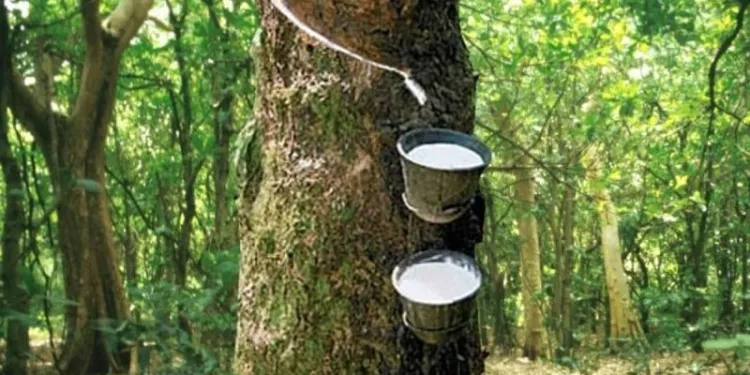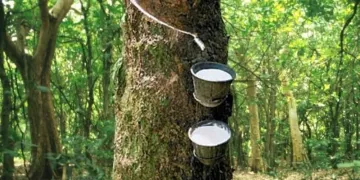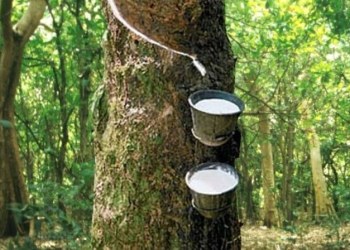The five demands presented to the government by the protesting rubber and oil-palm growers indicate a shift away from their original goal of seeking higher prices for their produce.
The growers got much backing when they first took to the streets to rally for higher prices. But their closure of railway and road sections in the South, as well as the violent clash with police in Prachuap Khiri Khan, has cost their protest legitimacy.
The five demands, made by leaders of growers from 16 southern provinces, are difficult to follow. They want the government to subsidise the rubber price at Bt90 or Bt95 a kilogram, while giving Bt1,260 in fertiliser subsidy to the growers for every rai of plantation, as offered by the government. It appears that having been given an inch, they intend to take a mile.
In addition, the protesters want the government to raise the rubber price to Bt120 a kilogram within six months. They also want Prime Minister Yingluck Shinawatra to meet their representatives and sign an agreement by tomorrow (September 13), although she is on an overseas trip and will not be back until Sunday.
Their demand for the government not to pursue legal cases against the demonstrators and their leaders indicates that they are aware that there is a question over whether their protest was peaceful.
The violent clash with police, which left some policemen seriously injured, is a criminal case and the government has no authority to make a decision in such a case. Yet the protesters have demanded compensation from the government for the death and injuries of protesters, as well as the damage done to them.
Although the government has agreed to raise the fertiliser subsidy to Bt2,520 a rai (Bt15,750 a hectare), many protesting growers do not appear to be satisfied. Some of them have threatened to close a major border checkpoint in Songkhla’s Sadao district and a main intersection in Chumphon. This threat certainly has dissatisfied many southerners, who will be affected by the closures. The Sadao border checkpoint is important to the region’s economy.
There are other groups of people in the South besides rubber and oil-palm growers. Many of those people are in the tourism industry and retail business, which are main arteries of the South’s economy.
The government says the growers’ protest has caused a large revenue loss for the southern provinces where street rallies were held: Bt22 million for Prachuap Khiri Khan, Bt95 million for Chumphon, Bt158 million for Nakhon Si Thammarat, Bt141 million for Surat Thani and Bt22 million for Phatthalung.
For many southerners, the protesting growers’ actions are a case of cutting off one’s nose to spite one’s face.
A protest tends to succeed when it can create sympathy and support among others, which in turn can be used to increase pressure on the government. It is not a good idea to cause suffering among prospective supporters by making threats and resorting to violence. This way, the power of the rally will keep diminishing and the rally’s original cause will be forgotten.
Source: nationmultimedia.com



























